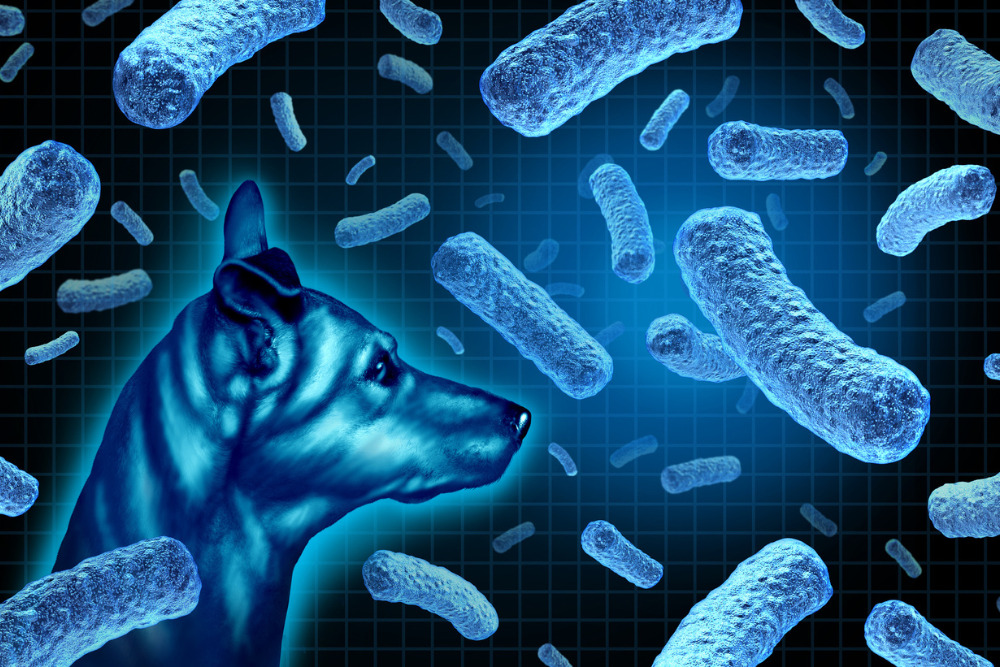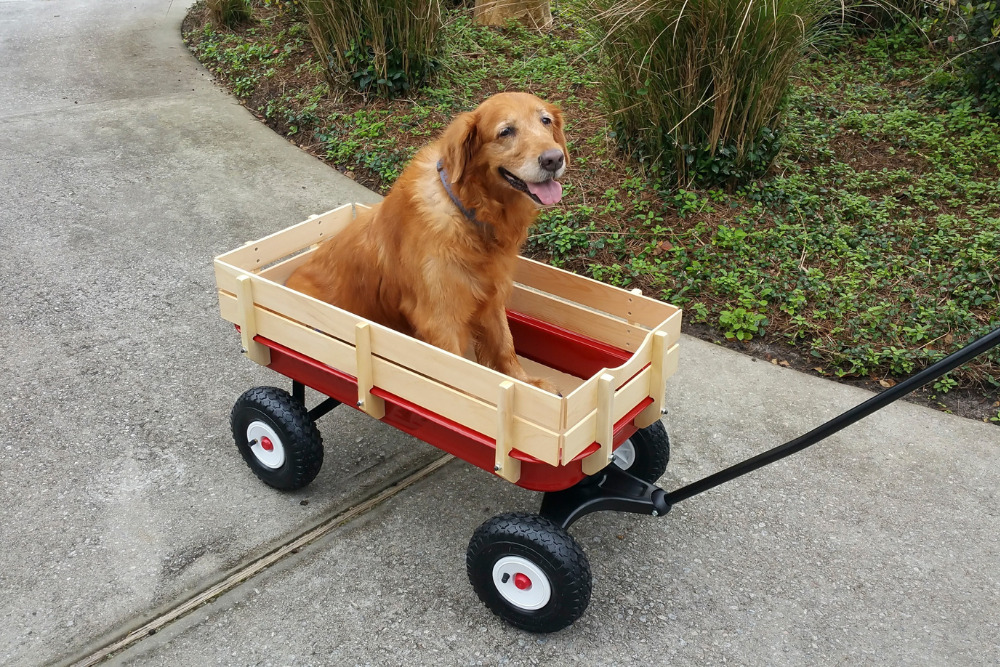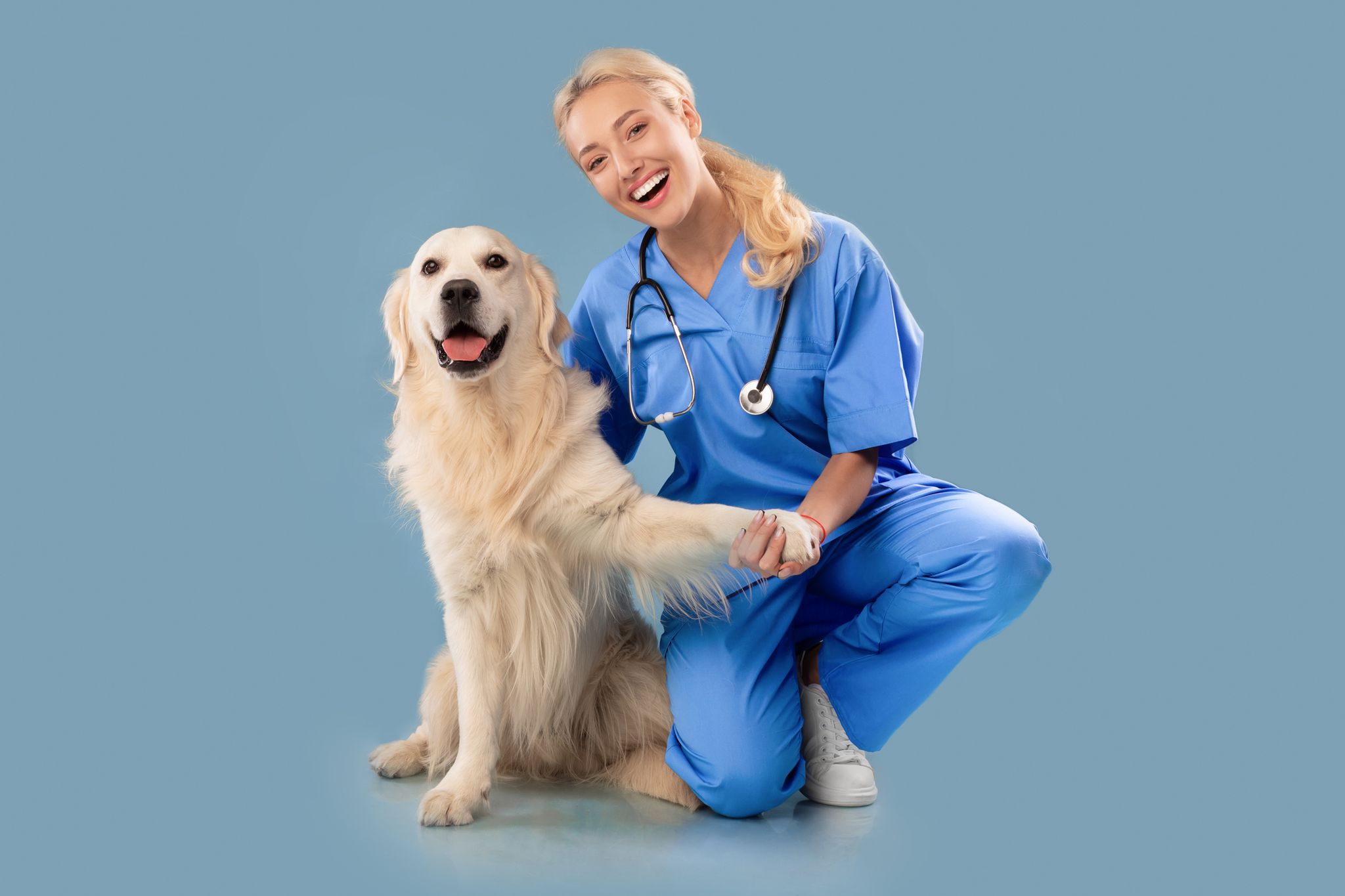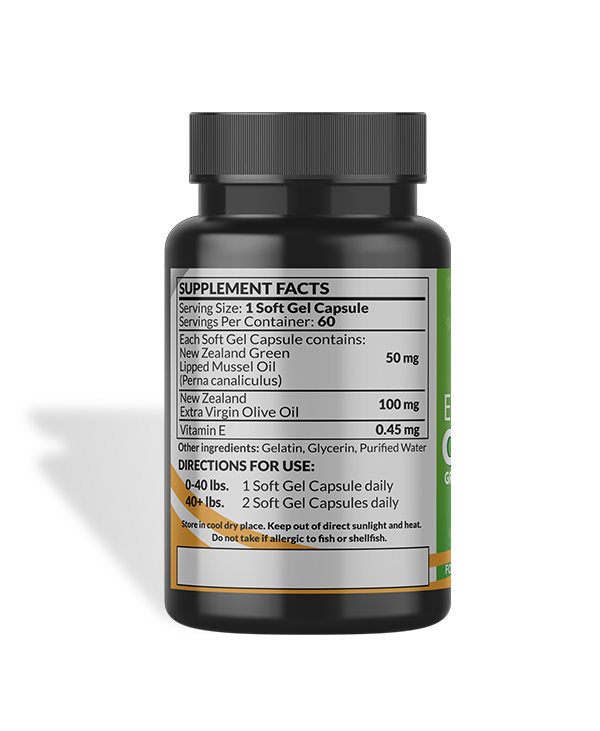As dog lovers, we want nothing but the best for our furry friends and that includes their health. When it comes to Golden Retrievers, a popular and beloved breed, it is crucial to be aware of the potential health issues they may face. In this comprehensive guide, we will delve into the Golden Retriever health issues that most common health concerns, discuss preventative measures, and explore ways to enhance their overall well-being.
Understanding and Proactively Managing Golden Retriever Health Issues
Golden Retrievers are known for their friendly temperament, loyalty, and intelligence. However, like all dog breeds, they are susceptible to certain health issues. By understanding these concerns and being proactive, you can ensure a healthier and happier life for your Golden Retriever.
Here’s a guide on Golden Retrievers Lifespan, you might like.
Delving into Genetic Problems in Golden Retrievers
Golden Retrievers, like many other dog breeds, can be prone to certain genetic problems that can affect their health and well-being. Responsible breeders play a crucial role in minimizing the occurrence of these issues by conducting genetic testing and breeding only healthy dogs. Let’s explore some of the common genetic conditions that can affect Golden Retrievers:
Elbow and Hip Dysplasia
These are common genetic conditions that affect the joints in Golden Retrievers. Warning signs may include difficulty moving, stiffness, lameness, reluctance to exercise, hopping or bunny-hopping gait, decreased activity levels, and difficulty rising or lying down.
Osteochondritis Dissecans (OCD)
Another condition that can affect the joints of Golden Retrievers is. It occurs when a piece of bone or cartilage loses its blood supply and dies, leading to joint pain and limited mobility. Warning signs may include limping, swelling around the affected joint, lameness, and reluctance to put weight on the affected limb.
Heart Disease
Golden Retrievers are susceptible to certain hereditary heart conditions that can impact their cardiovascular health.
Aortic Stenosis, which involves narrowing just above the aortic valve in the heart, leading to partial blockage of blood flow. Warning signs may include fatigue, exercise intolerance, coughing, rapid breathing, fainting, or sudden loss of consciousness.
Dilated Cardiomyopathy (DCM) is another heart condition. that can affect Golden Retrievers. It is characterized by the enlargement and weakening of the left ventricle, resulting in an impaired ability to pump blood effectively. Warning signs may include coughing, difficulty breathing, lethargy, decreased appetite, rapid or irregular heartbeat, and abdominal distension.
Cancer
Golden Retrievers have a higher predisposition to cancer compared to many other dog breeds.
One significant type of cancer is Hemangiosarcoma, which originates from the blood vessels and can occur in various parts of the body. Warning signs may include an enlarged abdomen, pale gums, unexplained weight loss, excessive panting, decreased appetite, and lethargy.
Osteosarcoma, a bone cancer, can be challenging to detect as its symptoms can be subtle. Warning signs may include pain, loss of mobility, limping, and nosebleeds.
Lymphoma, a group of cancers originating from lymphocytes, can also affect Golden Retrievers. Warning signs may include swollen lymph nodes, vomiting, abdominal pain, loss of appetite, diarrhea, and weight loss.
Mast Cell Tumors (MCT) are another type of cancer that primarily develops on the skin but can spread to internal organs in advanced stages. Warning signs may include the presence of lumps or abnormal skin growths, changes in the appearance of existing growths, itching, redness, or ulceration of the skin.
Eye Conditions
Golden Retrievers are prone to various eye conditions that can impact their vision and overall eye health.
One prevalent condition that Golden Retrievers may experience is known as Entropion. This occurs when the eyelid rolls inward, resulting in the hair on the surface of the eyelid rubbing against the cornea. Warning signs include squinting, excessive tearing, redness, and potential corneal ulcers.
Ectropion, on the other hand, is a condition where the eyelid rolls outward, resulting in redness, inflammation, and exposure of the inner eyelid. While less common in Golden Retrievers, warning signs may include eye irritation, excessive tearing, and discharge.
Severe Pigmentary Uveitis is another eye condition that can affect Golden Retrievers. Warning signs include redness, cloudiness, light sensitivity, and changes in vision.
Progressive Retinal Atrophy (PRA) is a degenerative condition of the retina that leads to progressive vision loss and eventual blindness. Warning signs may include night blindness, difficulty navigating in low light, dilated pupils, and a noticeable decline in visual abilities.
Skin Conditions
Atopic Dermatitis, an allergic skin disease with a strong inherited component. Warning signs of Atopic Dermatitis may include mild itching, scratching, or rubbing, which can lead to skin damage, redness, irritation, and discomfort. The symptoms can be seasonal or persistent throughout the year.
Non-Genetic Common Diseases in Golden Retrievers
While genetic health issues are a concern for Golden Retrievers, it is equally important to understand and address the non-genetic health issues that can arise in these wonderful dogs. Here are five of the most common health issues you may encounter when you own a Golden Retriever.

Allergies:
Golden Retrievers can be prone to allergies, including food allergies, environmental allergies (such as pollen or dust mites), and skin allergies (atopic dermatitis). Many veterinarians will recommend having a RAST test (blood test) conducted to determine whether a dog is allergic to certain antigens. Symptoms may include itching, redness, skin irritation, ear infections, and gastrointestinal issues.
Hot Spots:
Hot Spots (Acute Moist Dermatitis): Hot spots are a common skin condition that can affect Golden Retrievers. These are areas of the skin that become inflamed, moist, and irritated, often accompanied by intense itching and discomfort. Hot spots can develop due to numerous factors such as allergies, insect bites, or underlying skin infections. The affected areas may appear red, swollen, and may discharge fluid or pus.
Ear Infections:
Golden Retrievers, with their floppy ears and a tendency to retain moisture, are more prone to developing ear infections. It is important for owners to be vigilant and proactive in monitoring their dog’s ear health. Warning signs of an ear infection include excessive scratching or rubbing of the ears, redness, swelling, unpleasant odor, discharge, and visible discomfort.
Obesity:
A healthy Golden Retriever weight is important for the longevity of your dog. Excess weight puts strain on their joints, increasing the risk of joint problems such as arthritis. It also contributes to the development of conditions like diabetes and heart disease, which can significantly affect their overall well-being.
Dental Problems:
Dental health is an important aspect of overall well-being for Golden Retrievers. Common dental problems in Golden Retrievers include plaque buildup, tartar accumulation, gum disease, and tooth decay. These are the warning signs for more severe problems: bad breath, swollen or bleeding gums, yellowing or discolored teeth, excessive drooling, difficulty chewing or eating, pawing at the mouth, and overall reluctance to have their mouth touched.
Eye Problems:
Golden Retrievers are prone to a variety of eye conditions that can affect their vision and overall ocular health. One common eye condition in Golden Retrievers is cataracts, which is characterized by the clouding of the lens, leading to impaired vision. Another condition is progressive retinal atrophy (PRA), a degenerative disease that results in progressive vision loss and eventual blindness. Dry eye, also known as keratoconjunctivitis sicca, is another eye problem that Golden Retrievers can experience, causing inadequate tear production and resulting in dryness, redness, and discomfort.
Bloat (Gastric Dilatation-Volvulus or GDV):
Bloat is a serious and potentially life-threatening condition that commonly affects large and deep-chested breeds like Golden Retrievers. It occurs when the stomach fills with gas and becomes distended, and in some cases, it can twist or rotate, leading to a condition known as gastric dilatation-volvulus (GDV). Bloat requires immediate veterinary attention as it can rapidly progress and cause severe complications.
The symptoms of bloat may include a distended or swollen abdomen, unproductive attempts to vomit or retch, restlessness or pacing, excessive drooling, panting, rapid breathing, signs of abdominal discomfort such as stretching or rigidity, pale gums, weakness, and collapse.
Bloat is considered a veterinary emergency, and prompt medical intervention is necessary to relieve the gas buildup, stabilize the dog, and potentially perform surgery to correct any twisting or rotation of the stomach.
Golden Retriever Arthritis: Causes, Symptoms, and Treatment

After exploring genetic and non-genetic health issues, it is important to address a prevalent and significant condition that Golden Retrievers face arthritis and osteoarthritis. These conditions affect the joints, causing inflammation, pain, and reduced mobility. Arthritis can have a significant impact on a dog’s quality of life, making it crucial for Golden Retriever owners to be aware of the signs, treatment options, and strategies to support their furry companions’ joint health and overall well-being.
Understanding Golden Retrievers Arthritis:
Arthritis can develop in Golden Retrievers due to a combination of genetic factors, age-related wear and tear, previous joint injuries, or underlying joint conditions such as hip or elbow dysplasia. Over time, the protective cartilage that cushions the joints wears down, leading to inflammation, pain, and stiffness. Golden Retrievers, known for their active lifestyle and love for physical activities, may be more susceptible to joint issues and arthritis.
Signs and Symptoms of Arthritis:
It is essential for Golden Retriever owners to be aware of the signs and symptoms of arthritis, which may include:
- Limping or lameness: Dogs with arthritis may exhibit a noticeable limp, particularly after periods of rest or intense exercise.
- Stiffness and difficulty getting up: Arthritic dogs may experience stiffness, especially after rest, and may struggle to get up or lie down.
- Decreased activity levels: Golden Retrievers with arthritis may become less active, reluctant to participate in activities they once enjoyed, and tire more easily.
- Joint swelling and warmth: Affected joints may appear swollen or feel warm to the touch.
- Reluctance to climb stairs or jump: Dogs with arthritis may hesitate or avoid activities that require significant joint movement, such as climbing stairs or jumping onto furniture.
Treatment Options:
When it comes to managing Golden Retriever arthritis, there are several treatment options available to help alleviate symptoms and enhance their quality of life. While there is no cure for arthritis, the following approaches can make a significant difference:
-
Cellular BOOST
$35.00 - or Subscribe and Save 10% -
Cellular BOOST & Essential OMEGAS Bundle
$84.00 - or Subscribe and Save 10% -
Essential OMEGAS
$49.00 - or Subscribe and Save 10%
Medications:
Nonsteroidal anti-inflammatory drugs (NSAIDs) are commonly prescribed to reduce inflammation and alleviate pain associated with arthritis. It is important to note that while NSAIDs can be highly effective, they can also have potential side effects. These side effects may include gastrointestinal issues such as vomiting, diarrhea, or ulcers. Liver and kidney problems may also occur in some cases. It is essential to closely monitor your Golden Retriever for any adverse reactions.
Weight Management:
Maintaining a healthy Golden Retriever weight is crucial for reducing stress on the joints. Golden Retriever owners should ensure their dogs are on a balanced diet with appropriate portion control. Regular exercise, tailored to their individual needs, can also help prevent obesity and manage arthritis symptoms.
Physical Therapy and Exercise:
Controlled exercise and physical therapy can play a vital role in managing arthritis. These approaches help strengthen the muscles surrounding the joints, improve flexibility, and provide pain relief. Low-impact activities like swimming or gentle walks are often recommended to minimize joint strain.
Environmental Modifications:
Making certain modifications at home can significantly improve the daily life of an arthritic Golden Retriever. Providing ramps or steps can assist with mobility, making it easier for them to navigate their environment and access higher surfaces without excessive joint stress.
Assistive Devices:
The use of assistive devices can enhance a Golden Retriever’s mobility and comfort. Orthopedic beds provide cushioning and support, joint-supporting braces can stabilize affected joints, and mobility aids like harnesses or carts can help dogs with severe arthritis maintain their independence.
Supplements:
Green-lipped mussel oil has been shown to help arthritic animals by reducing the inflammation and allowing for better joint mobility.
Feeding Guidelines: Understanding the Role of Diet for Golden Retrievers
Feeding your Golden Retriever, the right type of food is crucial for their growth and overall health. Providing them with a well-balanced diet will ensure they enjoy a healthy life.
Golden Retrievers need a well-balanced diet, and it is worth noting that this breed often has a sensitive stomach. Therefore, it is best to avoid giving them any human food, as it may make them sick.
The Role of Supplements in Golden Retriever Health Issues
Supplements are valuable additions that can contribute to the overall health and well-being of Golden Retrievers. While a balanced and nutritious diet forms the foundation of their nutrition, supplements can play a crucial role in addressing specific health concerns and filling in nutrient gaps. This is particularly important considering the various genetic and non-genetic health issues, including arthritis and osteoarthritis, commonly faced by Golden Retrievers.
Out of the numerous supplements available, two supplements, Cellular BOOST and Essential OMEGAS, truly excel in providing exceptional health benefits. These supplements have shown remarkable efficacy in supporting Golden Retrievers in maintaining optimal health and managing various health conditions.
Cellular BOOST stimulates the red blood cells allowing better absorption of nutrients and oxygen. Essential OMEGAS are loaded with omega-3 fatty acids and a variety of other vitamins and minerals.
By giving these two products to your pets daily you are providing the ultimate cellular health available. Cellular health is important for your pet because it impacts their energy levels, immune system function, tissue repair and maintenance, and disease prevention.
Testimonials and Success Stories:
Heartfelt testimonials from Golden Retriever owners continue to emerge, highlighting the profound impact of Cellular BOOST and Essential OMEGAS on their dogs’ well-being. These supplements have proven to be a lifeline, even in the face of challenging health conditions such as cancer.
One devoted owner recounts their Golden Retriever’s battle with cancer, a daunting and heartbreaking journey. She had given her Golden Retriever Cooper Cellular BOOST and Essential OMEGAS daily for several years. She believes that these supplements played a crucial role in extending Cooper’s life. By promoting optimal blood flow and reducing inflammation associated with the cancerous tumor, she credits Cellular BOOST and Essential OMEGAS for enhancing Coopers overall well-being during this challenging time.
These stories show us the remarkable connection between cellular health, reducing inflammation, and the body’s ability to heal itself. While every dog’s response to these supplements may vary, the profound impact reported by this owner underscores the potential benefits that Cellular BOOST and Essential OMEGAS can offer, even in the face of formidable health conditions.
-
Cellular BOOST
$35.00 - or Subscribe and Save 10% -
Cellular BOOST & Essential OMEGAS Bundle
$84.00 - or Subscribe and Save 10% -
Essential OMEGAS
$49.00 - or Subscribe and Save 10%
Another Golden Retriever owner shares a heartwarming account of their dog’s journey with arthritic hind legs. Witnessing their beloved companion struggle with joint discomfort and limited mobility was a source of concern and empathy. Determined to enhance their dog’s quality of life, they decided to introduce Cellular BOOST and Essential OMEGAS into their daily routine.
Within a couple of weeks, they observed a noticeable improvement in their dog’s arthritic hind legs. Over time, their Golden Retriever experienced increased ease of movement, reduced stiffness, and improved mobility. Activities that were once challenging, such as walking and climbing stairs, became more manageable and enjoyable for their pup.
Frequently Asked Questions (FAQs)
Q1: Where did the Golden Retriever originate from?
A: The Golden Retriever breed originated in Scotland during the late 19th century. They were developed by a Scottish nobleman named Lord Tweedmouth, who aimed to create a versatile hunting dog capable of retrieving game from both land and water. The breed was developed through careful crossbreeding between various retrievers, spaniels, and other breeds with desirable traits. The result was the creation of the Golden Retriever, a breed known for its friendly temperament, intelligence, and excellent retrieving abilities.
Q2: What is the life expectancy of a Golden Retriever?
A: On average, the life expectancy of a Golden Retriever is typically between 10 to 12 years. However, with proper care, nutrition, and regular veterinary check-ups, Golden Retrievers can live even longer, reaching up to 14 years or more.
Q3: Why do Golden Retrievers shed so much?
A: Golden Retrievers are known for their abundant and dense double coats, which contribute to their shedding tendencies. Shedding is a natural process for dogs that helps them get rid of old or damaged hair and replace it with new hair growth. Golden Retrievers have a thick undercoat and a longer outer coat, both of which contribute to their shedding.
Q4: Are Golden Retrievers easy to train?
A: Yes, Golden Retrievers are one of the most trainable dog breeds. They are known for their intelligence, eagerness to please, and friendly nature, which makes them receptive to training. Golden Retrievers have a natural inclination for learning and enjoy engaging with their owners, which aids in their training process.
Q5: Do Golden Retrievers need a big yard?
A: While having a big yard can be beneficial for Golden Retrievers, it is not an absolute requirement. Golden Retrievers are an active and energetic breed, and they do need regular exercise to maintain their physical and mental well-being.
Q6: Are Golden Retrievers Water Dogs?
A: Yes, Golden Retrievers are considered water dogs. They have a natural love for water and are known for their excellent swimming abilities.
Q7: Are Golden Retrievers Good with Children?
A: Yes, Golden Retrievers are known for being good with children. They have a friendly, gentle, and patient nature that makes them well-suited for households with kids.
Final Thoughts:
Being aware of the Golden Retriever health issues that can affect this breed is vital for responsible pet ownership. By understanding the genetic problems, common diseases, and joint issues that Golden Retrievers may face, you can take the necessary steps to prevent, manage, and address these concerns. From providing a nutritious diet to regular veterinary care and attentive monitoring, you can ensure your beloved Golden Retriever leads a happy and healthy life.
Remember, your Golden Retrievers health is a top priority, and with proper care and love, you can give them the best chance for a long and fulfilling life.










